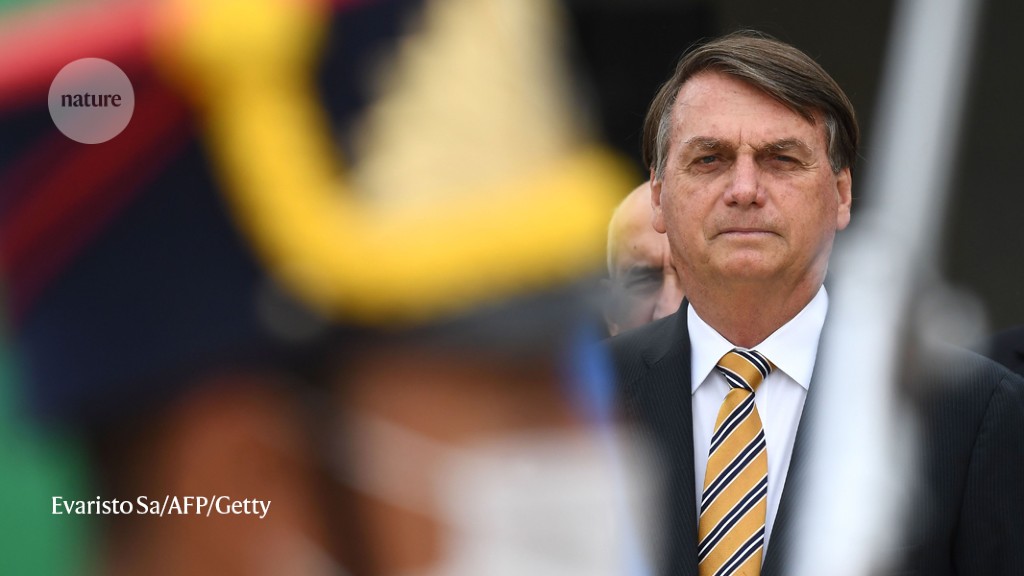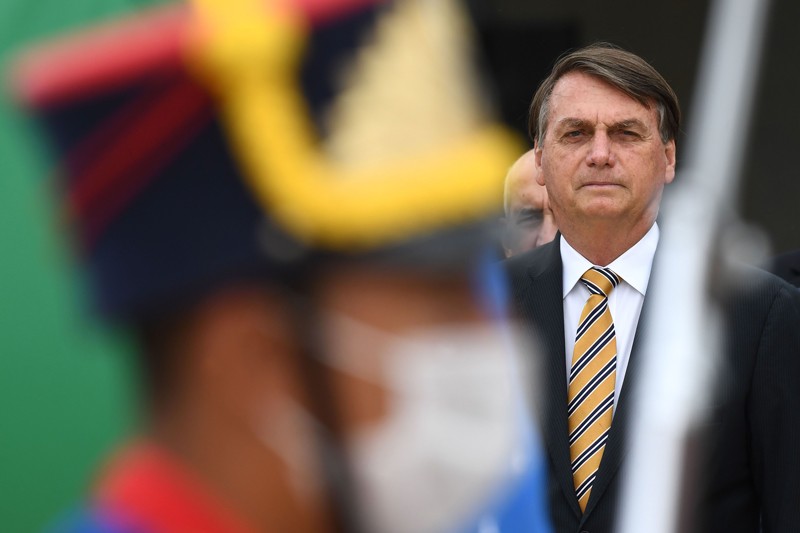The Brazilian science community is aghast at being dealt yet another blow over research funding. On 15 October, President Jair Bolsonaro signed a bill sending 600 million reais (US$106.3 million) earmarked for the country’s Ministry of Science, Technology and Innovation to several other government departments. The promise of the money earlier in the year triggered Brazil’s main science-funding agency to initiate its first ‘Universal Call’ for research-grant applications since 2018. Now, the 8,000 research proposals submitted face an uncertain future.
Years of funding cuts have been a hard pill to swallow for researchers in Brazil. The country’s main science agencies and funds received only 4.4 billion reais last year, about one-third of what they got in 2015, when funding peaked at 14 billion reais. Corrected for inflation, this is the smallest investment in research since 2004.
Researchers feel demoralized by the last-minute loss of funds promised this year. “The whole situation is depressing,” says Patricia Endo, a computer scientist from the University of Pernambuco in Caruaru, who is part of a team that submitted a proposal to the Universal Call to apply artificial intelligence to studying maternal health. “If it were not for my family, I would have left the country already.”
A gauge for support
The promised research money would have come from a special fund for industrial innovation and research, called the National Fund for Scientific and Technological Development (FNDCT). Taxes collected from industrial sectors such as biotechnology and energy mainly support the fund. Each year, a portion of the funds from the FNDCT are counted towards the science budget, says Paulo Almeida, executive director at the not-for-profit Science Question Institute in São Paulo. “But political allocation criteria keep it mostly frozen, doled out only with Congress approving specific bills releasing the funds,” he says.
This year, some $690 million reais would have been added to science funding, $655 million of which would have come from the FNDCT to support the National Institutes of Science and Technology and programmes including the Universal Call.
In early October, however, the economics ministry asked for a redistribution of the promised money. Instead of going to science and technology, the ministry proposed that it be distributed among departments such as infrastructure, agriculture, health and education and taken out of a 2020 government financial surplus. The science ministry will receive only a little over 7 million reais, and the National Commission on Nuclear Energy will get more than 82 million reais, to pay for the production of radiopharmaceuticals. These drugs are used to treat people with cancer, and their production in Brazil was halted last month because of lack of funding.
To former science minister Sergio Rezende, the amount the government releases from the FNDCT each year is a thermometer gauging its support for science. “Science has no value to the present government,” he says.
Sinking in
The biggest gut punch for researchers is the uncertainty now surrounding the Universal Call, which broadly funds research in areas from science to the humanities. Originally, the National Council for Scientific and Technological Development (CNPq), Brazil’s top science-funding agency, planned to use 200 million reais of the promised money for awarding grants to researchers through the call. It had not run a Universal Call since 2018 because of a shortage of funds.
Thousands of research proposals involving more than 30,000 scientists flooded in when this year’s call opened. Now, scientists await the results — to be released in November — without knowing whether there’s any possibility of funding.
“I spent some time to try and let the news sink in,” says Luisa Viegas, a biologist at the Federal University of Alagoas in Maceió, who proposed a three-year project to study how climate change threatens the existence of amphibians and reptiles in Brazil.
“We mobilized so much effort and energy to put the project together,” she says, noting that the project would have involved 30 researchers from Brazil and the United States. “Now, we’re thinking of submitting it to international funders, but it won’t be that easy because it’s really Brazil-specific.”
When asked by Nature why it prioritized other areas over science for receiving the funds, Brazil’s economics ministry responded by e-mail that it alone was not responsible for the change. “The change was decided by the government, with the support of the Budget Execution Board.”
In its request to divert the funds, the ecoomics ministry pointed out that the science ministry had not yet used all the money available in its budget for 2021.
To physicist Ildeu Moreira at the Federal University of Rio de Janeiro, a former president of the Brazilian Society for the Advancement of Science, the re-routing of funds is the latest of the Bolsonaro administration’s anti-science manoeuvres. “It’s a deliberate dismantling of science,” he says.
But some have not given up hope. Evaldo Vilela, CNPq’s president, says there is a new bill in the works that will attempt to recover the lost funding. It garnered support from politicians across multiple parties, and if it’s approved quickly, he says, “we can still have the Universal Call for this year”.








More News
Judge dismisses superconductivity physicist’s lawsuit against university
Future of Humanity Institute shuts: what’s next for ‘deep future’ research?
Star Formation Shut Down by Multiphase Gas Outflow in a Galaxy at a Redshift of 2.45 – Nature